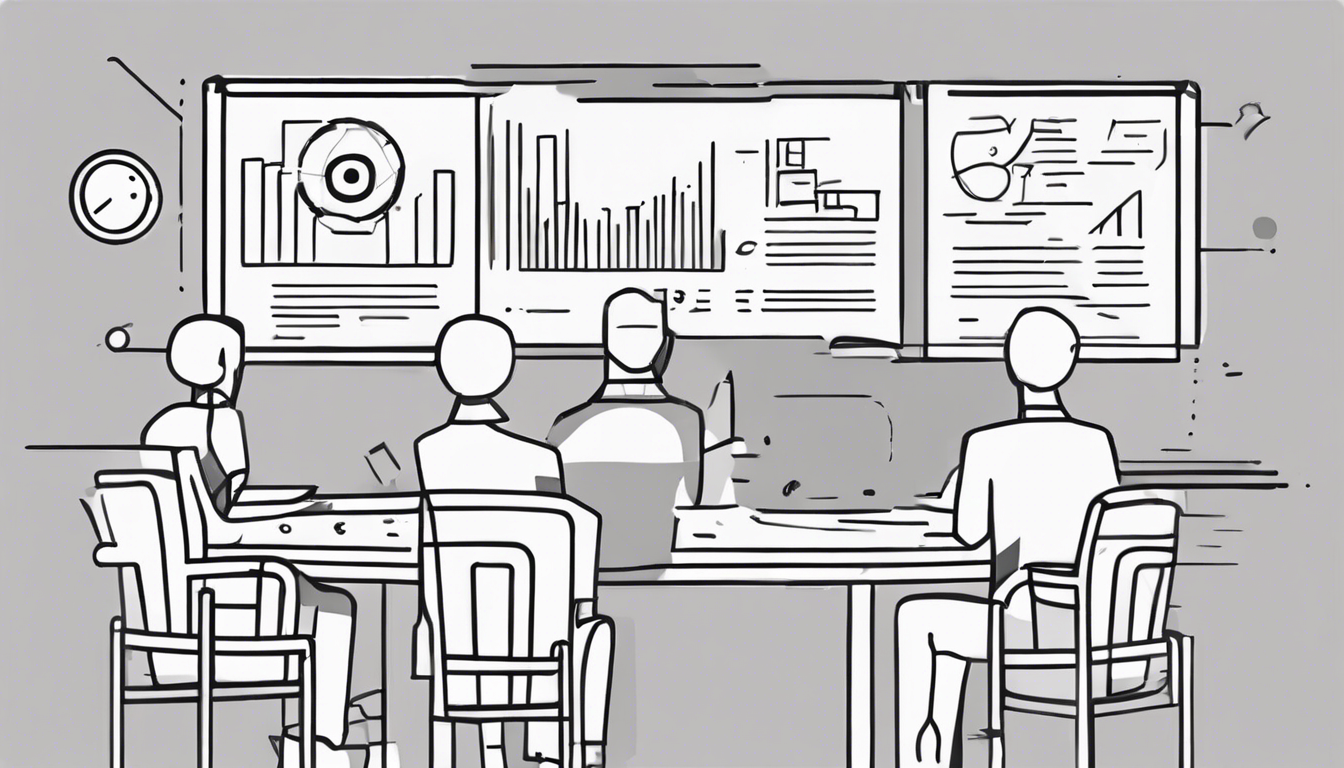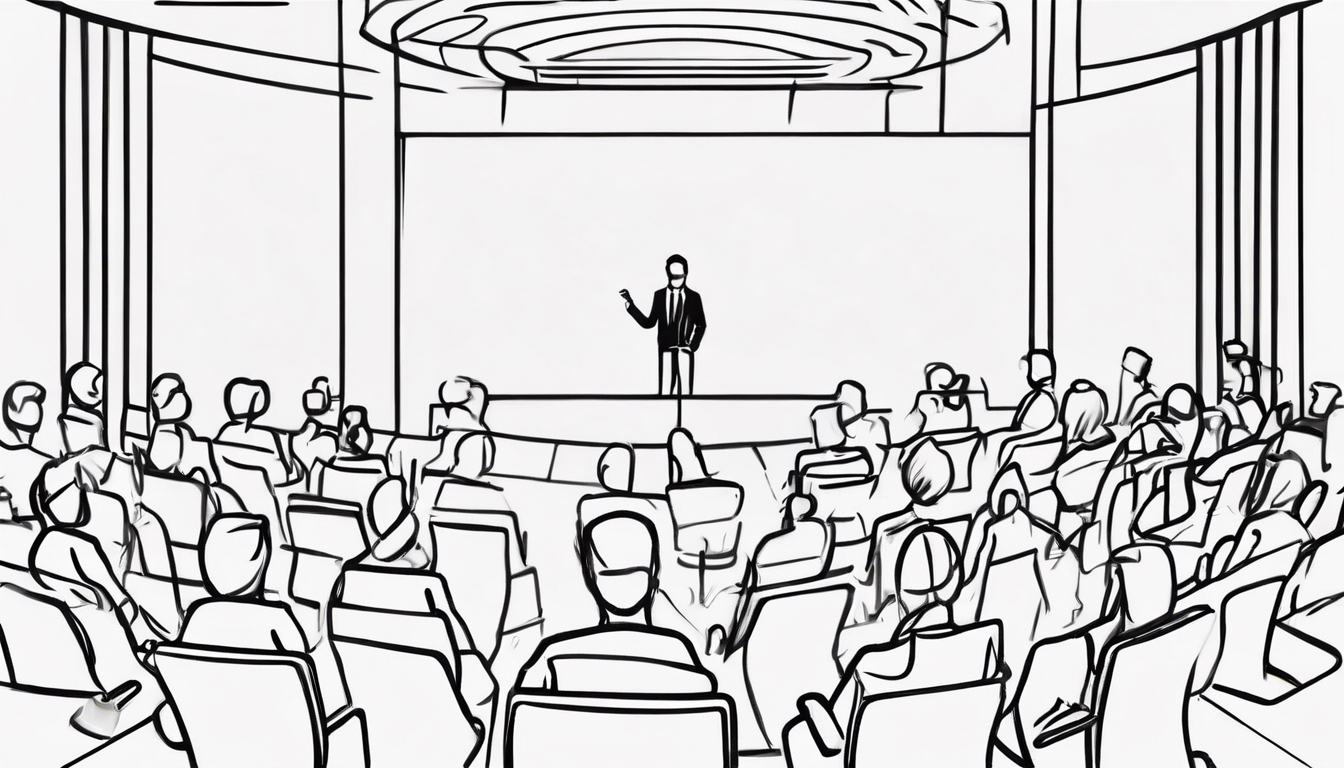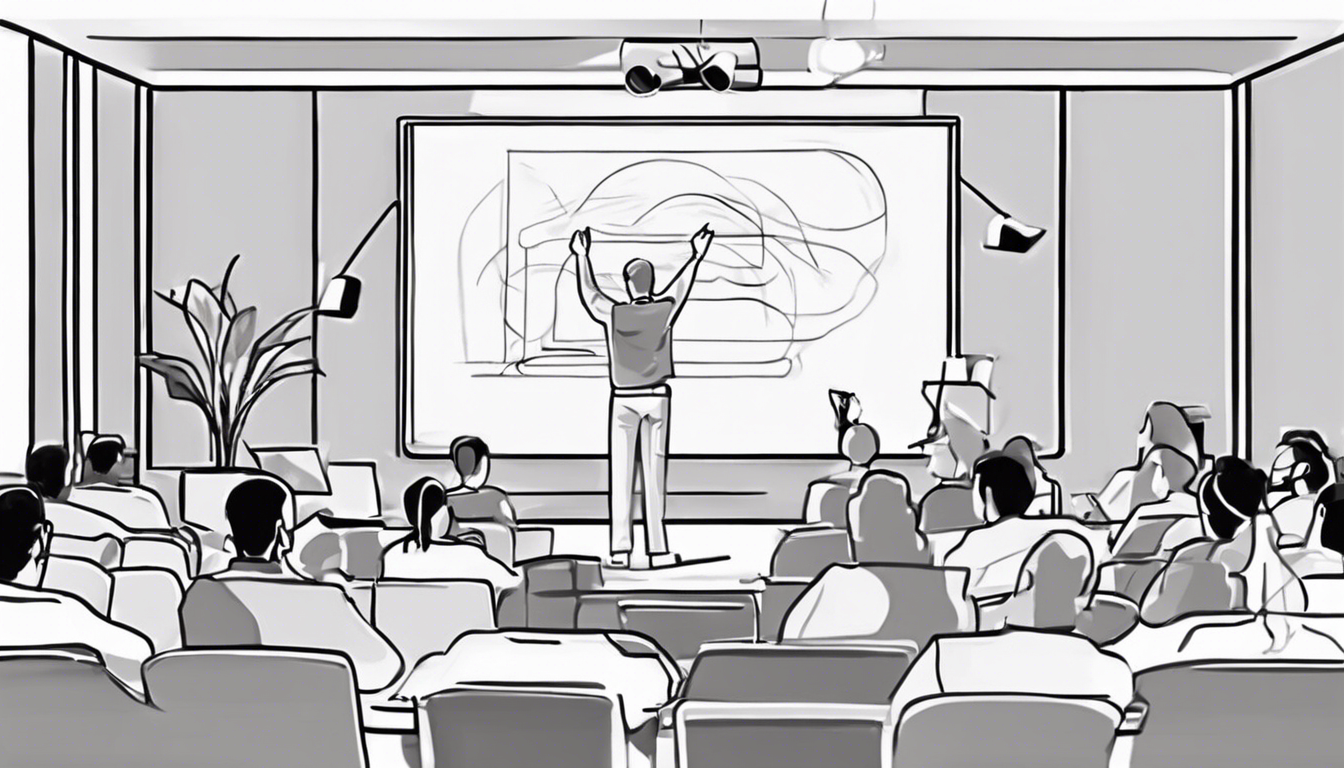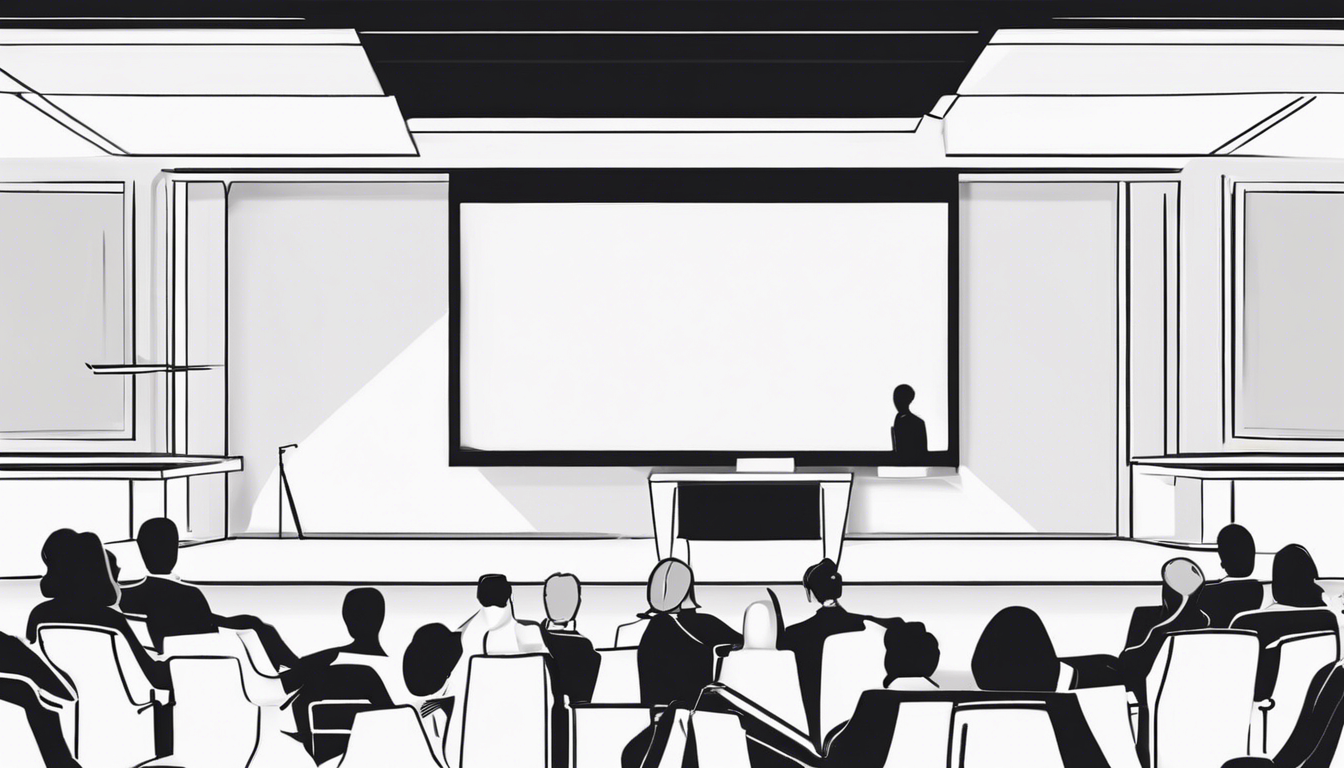Introduction
Keynote topics are like the cherry on top of a delicious event cake. They are the captivating themes that set the tone, engage the audience, and leave a lasting impression. Selecting the right keynote topics is crucial for the success of any event, be it a conference, seminar, or symposium. These topics serve as the guiding light that illuminates the path for both speakers and attendees, ensuring a memorable and impactful experience for all involved.
The importance of choosing relevant keynote topics cannot be overstated. They are the heartbeats of an event, pulsating with energy and enthusiasm. Imagine a conference without an exciting theme or a seminar without a thought-provoking subject – it would be like a party without music, dull and uninspiring. The right keynote topics have the power to spark conversations, inspire change, and create a sense of unity among diverse audiences.
This essay aims to delve into the art and science of selecting keynote topics that resonate with audiences, align with event objectives, and elevate the overall experience. By understanding the audience, identifying event goals, researching potential topics, evaluating speaker expertise, ensuring diversity and inclusivity, collaborating with event organizers, finalizing topics, and preparing speakers effectively, we can unlock the true potential of any event.
Understanding the Audience

Before diving into the sea of keynote topics, it’s essential to put on our audience goggles and see the event through their eyes. Understanding the demographics of the audience – their age, gender, profession, and interests – provides valuable insights into what topics would resonate with them. Whether you’re addressing a room full of tech-savvy millennials or seasoned professionals, tailoring the topics to their preferences is key.
Beyond demographics, delving into the interests and preferences of the audience is like discovering hidden treasure. What makes them tick? What keeps them up at night? By tapping into these emotional and intellectual triggers, we can craft keynote topics that not only capture attention but also stir the soul. From trending industry buzz to personal passions, the audience’s interests are the compass that guides us in the right direction.
Moreover, understanding the knowledge level of the audience is crucial for striking the right chord. Are they beginners looking for foundational insights, or are they seasoned experts craving advanced discussions? Adapting the complexity and depth of the topics to match the audience’s expertise ensures that the content remains engaging and informative, leaving attendees feeling both challenged and enlightened.
Identifying Event Objectives

Every event has a purpose, a north star that guides its journey from inception to execution. Identifying the overall goal of the event is like setting the destination on a GPS – it keeps us on track and ensures we reach our intended destination. Whether the event aims to educate, inspire, network, or innovate, the keynote topics must align seamlessly with these overarching objectives.
Key messages are the building blocks of event communication. They are the core ideas, the golden nuggets of wisdom that organizers want attendees to take away. Crafting keynote topics that convey these key messages effectively is like painting a masterpiece – each stroke contributing to the bigger picture. From motivating action to fostering collaboration, the topics should be the megaphone that amplifies these messages to the audience.
Expected outcomes serve as the finish line of the event marathon. What do organizers hope to achieve by the end of the event? Increased awareness, enhanced skills, inspired innovation? The keynote topics play a pivotal role in driving these outcomes, acting as the catalyst that propels attendees towards transformation and growth. By clearly defining these expected outcomes, organizers can tailor topics that lead to tangible results.
Researching Potential Topics

Researching potential keynote topics is like embarking on a thrilling expedition into the unknown. It involves diving deep into industry trends, exploring the latest developments, and uncovering the hidden gems that can captivate audiences. Staying abreast of what’s hot and what’s not in the industry ensures that the chosen topics are not only relevant but also future-focused.
Relevance is the golden rule when it comes to selecting keynote topics. Are the topics timely? Do they address pressing issues or emerging opportunities? Ensuring that the topics are not only of interest to the audience but also have real-world significance is paramount. By choosing topics that resonate with the current landscape, organizers can create a buzz that reverberates long after the event concludes.
Innovation and engagement are the dynamic duo that breathes life into keynote topics. Think outside the box, push the boundaries, and dare to be different. By infusing topics with fresh perspectives, interactive elements, and thought-provoking ideas, organizers can transform a mundane event into an unforgettable experience. From interactive workshops to immersive experiences, innovative topics are the secret sauce that keeps audiences coming back for more.
Evaluating Speaker Expertise

Speakers are the storytellers, the magicians who weave words into narratives that captivate and inspire. Evaluating their expertise is like examining a painter’s brushstrokes – it reveals their skill, experience, and ability to engage audiences. From academic qualifications to real-world experience, speakers bring a unique perspective to the table that can either elevate or diminish the impact of the chosen topics.
Alignment between speakers and topics is the secret ingredient for a successful event recipe. Do the speakers have a deep understanding of the chosen topics? Are they passionate about the subject matter? Ensuring that speakers are not only knowledgeable but also enthusiastic about the topics they will be presenting adds an authentic touch that resonates with audiences on a deeper level.
A track record of engaging audiences is like a badge of honor for speakers. Have they delivered impactful presentations in the past? Do they have a knack for connecting with diverse audiences? By reviewing their past performances, feedback, and audience engagement levels, organizers can gauge the speaker’s ability to bring the chosen topics to life and create a memorable experience for attendees.
Ensuring Diversity and Inclusivity

Diversity is the spice of life, and events are no exception. Ensuring the representation of different perspectives in keynote topics is like creating a vibrant mosaic of ideas, beliefs, and experiences. By embracing diversity, organizers can foster a sense of inclusion, respect, and understanding among attendees, creating an enriching environment where all voices are heard and valued.
Addressing various interests within the audience is like preparing a buffet of topics that cater to different tastes. Not everyone likes the same flavor of ice cream, and similarly, not all attendees will be drawn to the same topics. By offering a diverse menu of keynote topics that span a range of interests, organizers can ensure that every attendee finds something that resonates with them, creating a sense of personal connection and engagement.
Avoiding controversial or exclusionary topics is the golden rule of inclusivity. While diversity is encouraged, topics that may alienate or offend certain groups should be approached with caution. By steering clear of divisive subjects and focusing on themes that promote unity, understanding, and positivity, organizers can create a safe and welcoming space where all attendees feel respected, valued, and included.
Collaborating with Event Organizers

Collaboration is the secret sauce that elevates events from good to great. Working hand in hand with event organizers, sharing feedback, and exchanging ideas is like a well-choreographed dance that leads to a harmonious event experience. By listening to the suggestions and insights of organizers, speakers can fine-tune their topics, address logistical concerns, and ensure a seamless flow of content throughout the event.
Logistical considerations are the nuts and bolts that hold the event machinery together. From timing constraints to technical requirements, collaborating with organizers to iron out these logistical details ensures that the event runs smoothly and without hiccups. By aligning on key logistical aspects early on, speakers can focus on delivering engaging presentations without being bogged down by last-minute surprises.
Customization is the key to creating a memorable event experience. Tailoring keynote topics to align with the event theme, branding, and overall atmosphere is like adding a personal touch that resonates with attendees. By customizing content to fit the unique identity of the event, speakers can create a cohesive narrative that ties all elements together, leaving a lasting impression on attendees long after the event concludes.
Finalizing Keynote Topics

The selection process for keynote topics is like curating a fine art gallery – each piece carefully chosen to create a cohesive and impactful collection. By considering audience preferences, event objectives, speaker expertise, and overall theme, organizers can narrow down a list of topics that strike the right balance between relevance, engagement, and impact.
Confirmation with speakers is the final step in solidifying the chosen topics. Ensuring that speakers are aligned with the selected topics, have the necessary resources to deliver compelling presentations, and are fully committed to the event goals is essential. By confirming details with speakers well in advance, organizers can mitigate last-minute changes and uncertainties, ensuring a seamless and successful event.
Creating a balanced agenda is like crafting a symphony of topics that ebbs and flows, keeping audiences engaged and energized throughout the event. By structuring the agenda to include a mix of thought-provoking discussions, interactive sessions, and engaging presentations, organizers can create a dynamic and diverse program that caters to the varied interests and preferences of attendees, ensuring a well-rounded and enriching event experience.
Preparing Speakers and Presentations

Content development is the heart and soul of impactful presentations. From crafting compelling narratives to designing engaging visuals, preparing high-quality content is like laying the foundation for a successful event. By working closely with speakers to refine their content, organizers can ensure that the topics are not only informative but also captivating, leaving a lasting impression on attendees.
Rehearsals and feedback are the polishing touches that refine presentations to perfection. Practice makes perfect, and by conducting rehearsals, gathering feedback, and fine-tuning presentations, speakers can hone their delivery, timing, and messaging. Constructive feedback from organizers and peers helps speakers address blind spots, improve their performance, and deliver presentations that resonate with audiences.
Visual aids and multimedia are the dynamic tools that bring presentations to life. From eye-catching slides to interactive videos, incorporating visual aids enhances audience engagement, comprehension, and retention. By leveraging multimedia elements strategically, speakers can create a multi-sensory experience that captivates audiences, reinforces key messages, and elevates the overall impact of their presentations.
Conclusion
In conclusion, selecting keynote topics is not just about picking random subjects; it’s a strategic process that requires careful consideration, creativity, and collaboration. By understanding the audience, identifying event objectives, researching potential topics, evaluating speaker expertise, ensuring diversity and inclusivity, collaborating with event organizers, finalizing topics, and preparing speakers effectively, organizers can create events that leave a lasting impact on attendees.
The impact of well-selected keynote topics reverberates far beyond the event itself. It sparks conversations, inspires change, and fosters connections that endure long after the event concludes. By choosing topics that resonate with audiences, align with event goals, and showcase speaker expertise, organizers can create a transformative event experience that lingers in the minds and hearts of attendees for years to come.
As we look to the future, considerations for keynote selection will continue to evolve. Embracing new technologies, adapting to changing audience preferences, and staying ahead of industry trends will be key to creating events that stand out in a crowded landscape. By staying agile, innovative, and audience-centric, organizers can ensure that their events remain relevant, engaging, and impactful in an ever-changing world.





